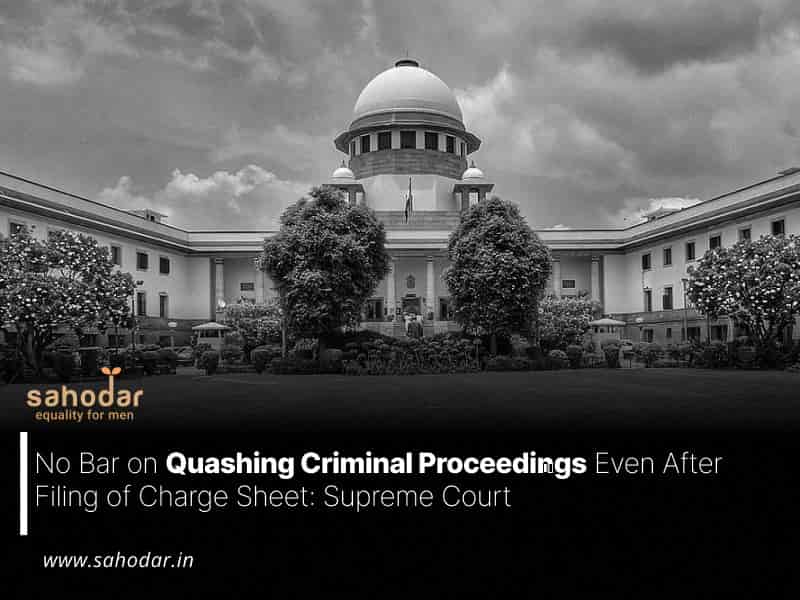The Supreme Court reaffirmed that there is no restriction on quashing criminal proceedings even after a charge sheet has been filed.
A bench consisting of Justices PS Narasimha and Pankaj Mithal stated this while dismissing a domestic cruelty case against the accused, observing that no new allegations surfaced after the charge sheet was filed, and the contents were identical to those in the First Information Report (FIR).
The Court referred to precedents that clearly established that there is no restriction on the High Court’s ability to exercise its inherent powers under Section 482 of the Cr.P.C. to quash a criminal case, even after the charge sheet has been filed and while a quashing petition is pending.
“There is no prohibition against quashing of the criminal proceedings even after the charge sheet has been filed,“ the Court said.
In Mama Shailesh Chandra v. State of Uttarakhand, the court opined that “even if the charge sheet had been filed, the Court could still examine if offences alleged to have been committed were prima facie made out or not on the basis of the F.I.R., charge sheet and other document”.
The court also referred to the case of Anand Kumar Mohatta vs. State (NCT of Delhi), where it was held that the High Court can intervene in criminal proceedings to prevent abuse of process even after the filing of a charge sheet, if it finds that the charge sheet does not establish any offense against the accused.
“There is nothing in the words of this section which restricts the exercise of the power of the Court to prevent the abuse of process of court or miscarriage of justice only to the stage of the FIR. It is settled principle of law that the High Court can exercise jurisdiction under Section 482 CrPC even when the discharge application is pending with the trial court. Indeed, it would be a travesty to hold that proceedings initiated against a person can be interfered with at the stage of FIR but not if it has advanced and the allegations have materialised into a charge-sheet. On the contrary it could be said that the abuse of process caused by FIR stands aggravated if the FIR has taken the form of a charge-sheet after investigation. The power is undoubtedly conferred to prevent abuse of process of power of any court.”, the court observed in Anand Kumar Mohatta’s case.

